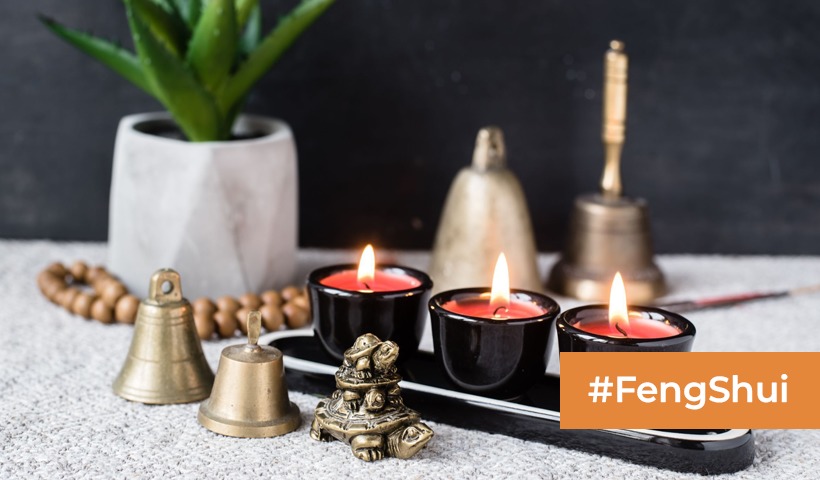Transforming Your Home Entrance with Feng Shui
The entrance of your home is not merely a physical doorway; it is a gateway to positive energy, prosperity, and well-being according to the principles of Feng Shui. Rooted in ancient Chinese wisdom, Feng Shui is the art of arranging one’s surroundings to attract positive energy or ‘qi.’ In this in-depth exploration, we will unravel the tips and techniques to transform your home entrance using Feng Shui principles, creating a harmonious and inviting space for you and your loved ones.
Understanding the Basics of Feng Shui:
- Qi Flow: At the core of Feng Shui is the concept of ‘qi,’ the vital life force that flows through everything. Ensuring a smooth and unobstructed flow of qi is essential for promoting positive energy and harmony within your home.
- Five Elements: Feng Shui revolves around the five elements – Wood, Fire, Earth, Metal, and Water. Balancing these elements in your home, including the entrance, is key to creating a harmonious environment.
- Bagua Map: The Bagua Map is a Feng Shui tool representing different life aspects, such as wealth, career, family, and health. Understanding the Bagua Map helps in placing objects and symbols strategically to enhance specific areas of your life.
Transformative Tips for Your Home Entrance:
- Clear the Clutter: Before delving into Feng Shui enhancements, start by decluttering your entrance. A clutter-free space allows qi to flow freely, promoting a positive and welcoming atmosphere. Remove unnecessary items and ensure the pathway is unobstructed.
- Create a Welcoming Path: The entrance should have a clear and inviting path leading to the main door. Use pathways, walkways, or plants to guide the flow of energy towards your home. A meandering path with gentle curves is preferable to a straight, direct route.
- Install a Sturdy Main Door: The main door is considered the mouth of qi, and its condition influences the energy entering your home. Ensure your main door is in good repair, opens smoothly, and is painted in a welcoming color. Red is often recommended for prosperity, while black or blue can represent career success.
- Balance Yin and Yang: Striking a balance between yin (passive) and yang (active) energy is crucial. Incorporate both elements in your entrance by combining soft and hard surfaces, light and dark colors, or natural and artificial lighting.
- Consider the Bagua Map: Apply the Bagua Map to determine the energy centers of your home entrance. Enhance specific areas by incorporating corresponding colors, materials, or symbols. For example, placing a small water feature in the career area can enhance professional opportunities.
- Leverage Mirrors: Mirrors are powerful tools in Feng Shui, reflecting and expanding energy. Placing a mirror near the entrance can create a sense of spaciousness and attract positive energy. However, avoid placing mirrors directly facing the main door.
- Integrate Plants and Flowers: Living plants and fresh flowers bring vibrant energy into your home. Choose plants with rounded leaves, as they are considered auspicious. Avoid thorny or sharp plants, as they can create negative energy.
- Illuminate with Proper Lighting: Adequate lighting is essential for a welcoming entrance. Ensure that your entrance is well-lit, preferably with natural light during the day. Consider adding warm, inviting lighting fixtures in the evening to maintain a positive ambiance.
- Address Creaky Doors and Squeaky Hinges: A well-maintained entrance includes addressing any issues with creaky doors or squeaky hinges. A smoothly functioning door promotes positive energy flow and eliminates any disruptions.
- Incorporate Protective Symbols: Feng Shui encourages the use of protective symbols to ward off negative energy. Placing a protective symbol, such as a Bagua mirror or the image of a guardian animal like the Fu Dog, near the entrance can create a sense of security.
- Choose Appropriate Colors: Colors play a significant role in Feng Shui. Choose colors based on the Bagua Map and the energy you want to enhance. For example, green symbolizes growth and abundance, while blue represents calmness and serenity.
- Personalized Enhancements: Incorporate personal touches that resonate with positive energy for you and your family. This could include meaningful artwork, family photos, or items that evoke joy and happiness.
Implementation and Practical Considerations:
- Gradual Changes: Feng Shui is about creating harmony, and it’s advisable to make changes gradually. Start with small enhancements and observe the impact on the energy flow in your entrance.
- Regular Maintenance: Maintain the positive energy in your entrance by regularly cleaning and updating the space.
- Open Spaces: Ensure that the entrance area is spacious and uncluttered. Avoid overcrowding the space with too many furniture pieces or decorative items. An open and airy entrance allows for the free flow of energy.
- Natural Materials: Incorporate natural materials such as wood, stone, or ceramic in your entrance design. These materials resonate with the Earth element in Feng Shui and contribute to a grounded and balanced energy.
- Mindful Artwork: Choose artwork that brings positive emotions and resonates with your aspirations. Mindful selection of art can not only enhance the aesthetic appeal of the entrance but also infuse it with positive energy.
- Harmonious Sounds: Consider incorporating soothing sounds or chimes near the entrance. Wind chimes or water features can introduce pleasant sounds that contribute to a tranquil and harmonious atmosphere.
- Functional Furniture: If your entrance has space for furniture, choose functional pieces that serve a purpose. For example, a console table with storage can help keep the entrance organized, while a comfortable bench provides a convenient seating option.
- Personalized Feng Shui Consultation: For a more personalized approach, consider consulting with a Feng Shui expert. They can provide insights specific to your home’s layout, your personal energy, and other unique factors that may influence the Feng Shui adjustments needed.
The Significance of Feng Shui in Indian Homes:
- Cultural Alignment: While Feng Shui originated in China, its principles align with certain aspects of Indian culture and Vastu Shastra. Both emphasize the importance of energy flow, balance, and the impact of the environment on well-being.
- Integration with Vastu Shastra: Many homeowners in India practice a blend of Feng Shui and Vastu Shastra, integrating principles from both traditions. This fusion allows individuals to draw upon the strengths of each system for a comprehensive approach to home harmony.
- Practical Applications: The practical applications of Feng Shui, such as decluttering, incorporating natural elements, and choosing harmonious colors, resonate well with Indian homes. These principles can be seamlessly integrated into various architectural styles and interior designs.
- Universal Appeal: The universal appeal of Feng Shui makes it accessible to people from diverse cultural backgrounds. Its emphasis on creating a balanced and positive environment transcends cultural boundaries, making it applicable and relevant to Indian households.
Transforming your home entrance with Feng Shui is a journey towards creating a space that not only looks appealing but also radiates positive energy. By incorporating the principles of qi flow, the Bagua Map, and the five elements, you can enhance the overall harmony and well-being of your living environment. From decluttering to choosing colors mindfully, each step contributes to the creation of a welcoming and balanced entrance.
Remember that Feng Shui is a holistic approach, and the changes you make should resonate with your personal preferences and lifestyle. Experiment with different adjustments and observe how they impact the energy in your entrance. Whether you are a Feng Shui enthusiast or someone new to its principles, the transformative tips provided can guide you in creating a harmonious and inviting entrance that aligns with the unique energy of your home.




